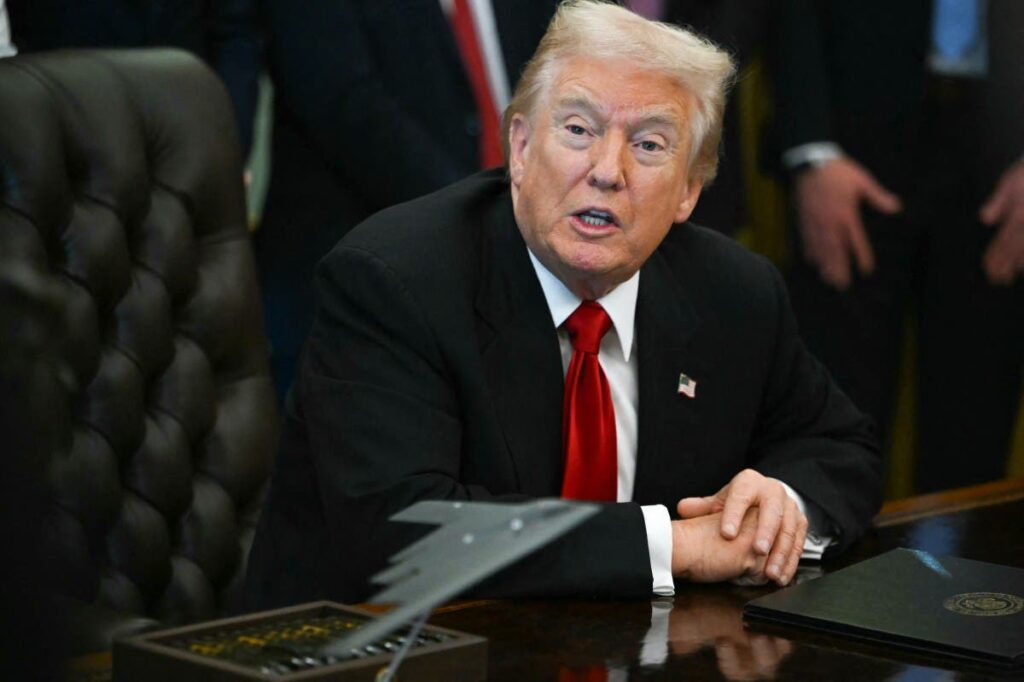The Department of Education released a major update Thursday as it finished its negotiated rulemaking session.
Under President Trump’s One Big Beautiful Bill Act (OBBBA), the Department has eliminated the Grad PLUS program and capped Parent PLUS Loans. The Trump administration is also changing student loan repayment plans created by the Obama and Biden Administrations and creating a new and simplified Repayment Assistance Plan (RAP).
Why It Matters
More than 42 million Americans hold approximately $1.7 trillion in student loan debt, making federal loan policy a major issue for families, universities, and the U.S. workforce.
The Trump administration’s changes mark the most comprehensive reform to the student loan system in decades, affecting current and future borrowers. These reforms include stricter limits on graduate and parent loans, fewer repayment options, a new Repayment Assistance Plan (RAP).
The Department also opted to exclude some nonprofit and government workers from loan forgiveness under the PSLF program if their organizations are found to have a “substantial illegal purpose.”
What To Know
OBBBA Overhauls Federal Student Loan Rules
The U.S. Department of Education declared on Thursday the completion of a rulemaking session to implement the OBBBA, following consensus by the Reimagining and Improving Student Education (RISE) Committee.
The act eliminates the Grad PLUS loan program, imposes strict caps on Parent PLUS loans, dissolves multiple existing repayment plans, and introduces a single Repayment Assistance Plan (RAP) set to launch in July 2026.
Starting that date, graduate students will be limited to borrowing $20,500 annually (up to a $100,000 lifetime maximum), and professional students will be capped at $50,000 per year (up to $200,000 overall). Parent PLUS Loans will also face new restrictions.
The Department of Education characterized these moves as necessary to prevent unsustainable borrowing and rising tuition costs.
Disputed Changes to the PSLF Program
In parallel, new rules revising PSLF eligibility are set to take effect on July 1, 2026. The Department of Education will now exclude public service employers found to have a “substantial illegal purpose,” such as those involved in supporting undocumented immigrants, providing gender-affirming care to minors where prohibited, or being found guilty of terrorism-related activities. Employees of those organizations will be barred from PSLF loan relief moving forward.
The rules grant the Education Secretary discretion to determine ineligibility by weighing court judgments, legal settlements, or other evidence, sometimes even absent a formal conviction. Employers can regain their PSLF status after completing a corrective action plan or waiting a decade. Payments made by borrowers before July 1, 2026, remain protected.
Legal Challenge and Pushback
Four U.S. cities, including Boston and Chicago, joined with major labor unions to file suit in federal court, arguing the administration’s new PSLF criteria represent an illegal attack on public sector workers. Plaintiffs claim the change violates past Congressional promises and will make it harder to staff vital government and nonprofit jobs.
The new PSLF criteria could affect millions. In 2022, roughly 9 million borrowers were potentially eligible for PSLF. The Biden administration previously expanded PSLF access, but President Trump’s reforms now restrict the pool substantially.
What People Are Saying
Under Secretary of Education Nicholas Kent said in a statement: “We appreciate the committee’s efforts to assist the Department in implementing President Trump’s One Big Beautiful Bill Act, which will simplify our complex student loan repayment system and better align higher education with workforce needs. The consensus language agreed upon by the negotiators today will help drive a sea change in higher education by holding universities accountable for outcomes and putting significant downward pressure on the cost of tuition. This will benefit borrowers who will no longer be pushed into insurmountable debt to finance degrees that do not pay off.”
Alex Beene, a financial literacy instructor for the University of Tennessee at Martin, told Newsweek: “Major changes will be coming to student loans next year that current and future students will have to keep track of and adjust to in the years ahead … Many of prior forgiveness programs have been combined into a Repayment Assistance Plan, which will offer some additional relief to borrowers based on their income but still requires a minimum payment each month compared with prior debt relief products that have been introduced.”
What Happens Next
Many student loan borrowers will likely want to change their loan details under the Education Department reforms. College students too could be affected by the changes, Beene said, as they opt for more stable degree pathways.
“These revisions could certainly cause some student to rethink their plans,” Beene said. “With caps and fewer forgiveness options, students may change majors to areas that are more financially secure and can ensure the loans they take out are repaid.”
Read the full article here

